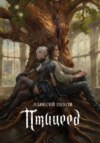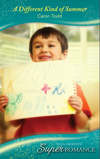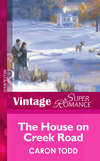Читать книгу: «Small Town Cinderella»
So that was Emily Robb.
The problem of how to meet her was solved. He watched until she reached her car – an old Tempo, 1990, maybe – then he shut the door. It didn’t do anything to shut out her indignation.
People reacted differently to a blank slate. Some rushed to please, some got angry, some got scared. He’d been up all night and had reached the point of not fully trusting his impressions, but it was clear her efforts to please weren’t for his benefit. Daniel’s, he supposed. Or maybe the community’s.
Hard to know what to think about her. Flustered, emotional, a little on the schoolmarmish side. At least, that was what she presented. For some reason he kind of liked her. But that didn’t have to be a complication.
He yawned and rubbed sandpapery eyes. His files were downloaded, passwords set up, contacts alerted. Time for coffee and a shower. Then he’d go exploring.
Small Town Cinderella
CARON TODD
To my parents, whose appreciation of books and
respect for language – its poetry and its rules –
helped me find this very enjoyable path.
CHAPTER ONE
THE MORE Emily thought about Daniel missing the wedding, the more concerned she became. Nearly everyone from in and around Three Creeks had gone, whether or not they were formally invited, and he had certainly been invited.
She sank her hands to the bottom of the sink, feeling under the bubbles for any last breakfast dishes, then pulled the plug, wrung out the dishcloth and spread it over the rim of the sink to dry.
“Mom? I’m going to run into town to check on Daniel.”
Julia sat at the kitchen table behind a stack of cookbooks, shoulders bent, graying hair twisted into a tidy roll just above her neck. She pressed one finger under the line she’d been reading and looked up, not quite at Emily, but beside her. “On Daniel?”
“In case he’s fallen or something.”
“Not him.”
Emily wasn’t sure if that was an expression of confidence or disappointment. She had never been able to figure out what her mother and Daniel thought of each other. “He’s immune to trouble, is he?”
Julia had already gone back to her book. She rarely cooked, but she liked reading recipes.
“I’ll drop in on Grandma, too. See how she’s doing after all the excitement. I won’t be long.”
This time her mother gave an absent nod.
As soon as Emily took her keys and purse from the hutch cupboard, the cat appeared from under the table, nearly tripping her on her way to the door. It was a stray that had adopted them that spring, establishing itself first on their driveway, then their front step and, finally, at their feet, wherever their feet happened to be. So far they hadn’t given it a name. It faced a tough decision when she opened the door, but decided to stay with Julia.
Emily stepped outside. Right away, perspiration prickled on her forehead. It was a still, quiet day, the heat too much even for the squirrels and goldfinches she usually heard. There had to be a hundred trees in the yard, with millions of leaves, but not one rustled. Not until Hamish emerged from under the caragana hedge. He stretched one leg behind him, then the other, and his tail gave a token wave.
“Good morning, old man.” She bent to stroke the border collie’s white-streaked face. “Don’t worry, in a few months it will snow. Won’t it be nice to have the cold to complain about?”
She emptied stale water and drowned flies from his dish and refilled it. “There. All set. You’re in charge, Hamish.” His tail wagged harder.
DANIEL LIVED on the north edge of Three Creeks, a few miles from Emily and Julia’s farm. His house stood on the last of five elm-lined streets that branched off the town’s main road and ended one block later in a field of mixed clover. It wasn’t his family’s original property. That was long gone, the trees and yard bulldozed when the provincial highway first went through and the house torn down years later, when it was widened.
The Rutherfords had moved away then, scattering across the country. Daniel had spent most of his adulthood moving from place to place, first in the Army and then the RCMP. No one had expected him to come back, but one day a sign had appeared on the community bulletin board—Daniel Rutherford: Security Consultant—and there he was, home for good.
All of that had happened before Emily was born. It was one of the stories she heard whenever her relatives were in the mood for reminiscing. As far as she was concerned, Daniel had always been in Three Creeks, as much a part of her world as her grandparents and her aunts and uncles.
She pulled up outside his house, a cozy story and a half—cozy except for the security bars on the basement windows. The driveway was empty.
He didn’t usually park in the garage, but she decided to check. Protecting his car’s finish from the sun wasn’t an issue. He’d been driving the same sky blue ’77 Cutlass for as long as she’d known him and it had done all the fading it was going to do.
The doors were locked. She leaned close to the window and shielded her eyes so she could make out the shapes inside. No car and, as far as she could see, no Daniel.
“I’m surprised you’re out and about today, Emily.” The soft voice startled her. An older woman wearing long sleeves and a wide-brimmed straw hat had come out of the neighboring house. “Don’t you need a bit of slothful time?”
“I slept until nine, Mrs. Bowen. How much more slothful could I get?”
“A hammock comes to mind. How is your dear mother this morning?”
“Craving solitude.”
Mrs. Bowen gave an understanding smile. “What a lovely day it was yesterday. Perfect for a wedding. It did my heart good to see you and Liz and Susannah together again.”
“Mine, too.” Emily’s cousins hadn’t been home at the same time since high school. After fifteen years in Vancouver Liz had recently moved back, but Susannah never would. Paleontologists had to live where there were fossils to dig.
“Liz and Jack are off, are they?”
“Somewhere over the Atlantic by now.”
“And you’re visiting already! You won’t find Daniel home. He hasn’t been around for the better part of a week.”
That couldn’t be right. She’d spoken to him a week ago, and he hadn’t mentioned a trip then. “Did he say anything to you about going out of town?”
“Not a word, but he never does. Are you worried that something may have happened to him? He’s a very self-reliant man, dear.”
But in his seventies, Emily thought, and gone without explanation.
“I’ll be right back.” Mrs. Bowen disappeared into her house and returned a few minutes later, flushed from hurrying. “He leaves a spare key with me. I suppose we could take a peek inside.”
After ringing the bell twice, then knocking, she unlocked Daniel’s side door and opened it a few inches. Hot, stuffy air reached Emily’s nose.
“Hello? Daniel?” It was a tentative call. Mrs. Bowen hardly raised her voice, as if even that would be an intrusion. They went up the steps from the landing into the kitchen.
“Oh, his plants! Look at them!” Mrs. Bowen pushed a half-full coffee mug out of the way and began carrying drooping begonias, philodendrons and violets to the sink. “What was he thinking, leaving them like this?”
Now Emily was even more worried. She quickly checked the main floor and the two small bedrooms under the eaves. Upstairs and down, dust had settled on surfaces, but there was no sign of Daniel and nothing to suggest he had run into any kind of problem.
“Some milk and fruit in the fridge were going off, and there was moldy bread in the box,” Mrs. Bowen said when Emily returned to the kitchen. “I’ve got rid of those and watered the plants. You know, Daniel usually is quite responsible about them when he’s away. He rigs trays of water so they can drink as much as they need. He must have been in a hurry this time.”
She paused when Emily opened the basement door. “His cameras and so on are down there, all that police paraphernalia of his.”
“I won’t touch anything.” She flicked on the light. A staircase with narrow steps and steep risers came into view. It was hardly better than a ladder. If Daniel had fallen anywhere, this would be the most likely place, but there was no huddled shape at the foot of the stairs. She sidestepped down, keeping one hand on the rail and the other on the wall.
Rows of metal shelves filled the room. They were stacked with sealed cardboard boxes, coiled wires and stainless steel equipment Emily didn’t recognize. All she knew was it helped ranchers guard against poachers and small businesses ward off the occasional thief. She tried a door in the middle of one wall. It was locked.
Mrs. Bowen’s voice came from the head of the stairs. “That must be the furnace room. At least that’s where my furnace and water heater are, but they’re not walled off like that.”
“Why would he lock the furnace room door?” Emily felt over the top of the frame for a key. It didn’t seem likely that an ex-Mountie who ran a security business would stash a key so close to the lock it opened, and of course, he hadn’t. She rattled the knob. “Daniel?”
“He’s not in there. I really think he’s gone off the way he does sometimes. You worry too much about people, dear.”
Emily started back upstairs. She didn’t think she worried too much. Just a sensible amount, about sensible things…her grandmother’s health and her mother’s absent-mindedness. And now Daniel’s unexplained absence.
The telephone sat on a recessed ledge near the kitchen table. She opened the yellow pages and made a series of calls. The RCMP in Pine Point told her a ’77 Cutlass hadn’t been involved in any accidents. Daniel hadn’t been admitted to the local hospital, or any of the hospitals in Winnipeg.
“I don’t know what else you can do, Emily.”
“There’s still the garden to check.”
They went out together, Mrs. Bowen unlocking the gate and recounting all the times her neighbor had disappeared for a day or two, or even a week, and returned without explanation. If you didn’t have ties at home, why not travel whenever the urge hit you?
She broke off when they rounded the corner.
The soil was cracked and gray. Lettuce leaves wilted, tissue-paper dry against the ground. Tomato plants drooped despite the wire frames around them. Green beans shriveled on the stem. Muttering that it was too late now, and what was wrong with her not to have thought of it before, Mrs. Bowen hurried to the back of the house and began uncoiling a green hose from a metal bracket.
Daniel loved his garden. Digging in it, choosing seeds, watching daffodils come up in May and roses open in June, harvesting vegetables at exactly the right moment. If that wasn’t a tie, Emily didn’t know what was.
EMILY PARKED OUTSIDE the general store and post office. It was a Saturday morning, so the store was full of people getting groceries, picking up mail and helping themselves to fifty-cent cups of coffee at the lunch counter. Everyone stopped to comment on Liz and Jack’s wedding and Emily began to wonder if she would ever reach Mrs. Marsh, who worked slowly and calmly, her ashtray and cigarette at her side. She belonged to the same generation as Mrs. Bowen, but seemed to want to disprove it. Her hair, a deep rust-red, was cut short, with bangs brushed flat against her forehead and a sculpted point of gelled hair in front of each ear.
When Emily finally had her turn at the counter, buying a bunch of bananas to be polite, Mrs. Marsh said, “Didn’t think you’d be out this morning. No rest for the wicked, eh?”
“This from a woman who works seven days a week.”
“Got me there.”
“I wanted to ask you about Daniel Rutherford’s mail—”
“You can ask, but I can’t answer.”
Emily paused, then tried again. “He seems to be away—at least he wasn’t at the wedding yesterday and he isn’t home right now. I wondered if he made arrangements with you to hold his mail or forward it somewhere.”
Mrs. Marsh picked up her cigarette. She took a deep, appreciative drag, then inhaled the surrounding smoke for good measure. Smoking wasn’t allowed in enclosed public places anymore—a sign staring right at them said so—but no one liked to mention that to the postmistress. “I’m not supposed to discuss customers’ mail. Can’t walk without banging into a rule these days.” She went to the post office section of the counter. “Couple of things came for you and your mom yesterday. The hydro bill and another one of those book catalogs.”
Emily put the mail in the bag with the bananas. “Is there anything the rules will let you tell me?”
“I guess you heard John Ramsey’s coming to visit.”
“No, I didn’t.” She considered leaving it at that, but ended up asking, “When is he expected?”
“Don’t know exactly. In a couple of weeks. Going to take a little trip, like you did last time?”
“That was an in-service for people working in school libraries.”
“Can’t hope for that now, eh? Not in the summer.”
Emily smiled. “I don’t want to avoid John. I’ll be glad to see him.”
She thanked Mrs. Marsh for the mail and the bananas and went out into the hot sunlight, glad to get the door between her and the curiosity she felt coming from her neighbors. It wasn’t a lie. After all this time she would be glad to see John, if they happened to run into each other.
Halfway down the road was the Legion Hall. Inside, five of Daniel’s friends sat at a table with a pitcher of Guinness in front of them and mugs at varying degrees of emptiness in hand. They waved her over, mentioned how good the food had been at the wedding and told her how pretty she’d looked in her bridesmaid’s dress. None of them had any idea where Daniel had gone.
“He does what he wants, Emily. Things like weddings and gardens don’t stop him.”
“Even if it’s Liz’s wedding?”
“Even if it’s his own.”
They all laughed at that. Five tolerant smiles came her way, along with a pat on the arm that felt more like a dismissive pat on an anxious child’s head.
WHERE THE CREEK ROAD CURVED and narrowed, becoming Robbs’ Road, Emily slowed the car. Manitoba maples and purple clover filled the ditches and hidden by trees on her right, one of the three creeks flowed. The road wasn’t much of a barrier between woodland and water. Deer and rabbits went across to drink; sometimes at night she saw foxes and raccoons. She often lurched the last mile home, starting and stopping, weaving around toads and garter snakes.
Yesterday had been tough on them, with all the cars crunching along from town for the reception. Most wedding dinners were held in the church basement or at the hotel in Pine Point, but Liz had wanted to celebrate at their grandmother’s place. It was the house their great-great-grandparents had built, where she and Jack had met, and where she had finally made peace with the ghosts of her first, short marriage.
When they came back in the fall, Jack would move in with Liz and Eleanor. They had already started working on the house, replacing windows, reshingling the roof and repainting inside and out. With so much work taken off her hands and someone to talk to whenever she wanted company, Eleanor had begun to look healthier and more rested.
It had been a hectic week, though, and today her fatigue was apparent. Emily found her at the kitchen table, shelling peas. The dogs, Bella and Dora, watched intently, as if every hard green kernel hitting the bowl was a slice of roast beef.
“On your own today?” Emily took a handful of pods and began to snap them open. The rest of the family had gone to the lake, a half-hour’s drive away.
“A cool kitchen sounded better to me than a hot beach.”
“To Mom, too.”
“And you?”
“I don’t mind a chance to catch my breath.” Since the beginning of June she’d been going full tilt, helping with wedding plans at home, Field Day and Awards Day at school and doing inventory for the library. She’d closed it the previous week, around the time dress fittings and dainty making had mutated from cousinly togetherness to near panic.
She reached for more pea pods and began to tell her grandmother about her concern for Daniel.
“There couldn’t have been anyone missing,” Eleanor said at first. “The church was bursting.” She looked out the window as if trying to visualize the crowd of guests. “Come to think of it, I didn’t speak to Daniel at all yesterday. He must have been here. He left a gift.”
Emily had seen the package on the gift table, too. Even without his signature on the card she would have recognized the sometimes ornate, always measured letters that reminded her of his age when nothing else did. “Maybe someone dropped it off for him.”
“Wouldn’t that suggest he made plans to be away?”
“I suppose it would. Am I fussing?”
“You?”
Emily laughed. “That’s the thing about worrying. It’s hard to know when it’s reasonable.”
“I do understand. What woman wouldn’t? Learned or instinct, we tend to take care of people. School’s out, my dear. We’ve finally got Elizabeth and Jack married and on their way. Isn’t it time to relax and enjoy the summer?”
“Mrs. Bowen mentioned a hammock.”
“What a good idea. Get yourself a hammock and a pile of books and don’t budge for a month. Who knows, maybe your mother will notice the dust and take care of it herself!”
Emily couldn’t help smiling at the thought of her mother minding dust that settled anywhere but on her books.
“Don’t forget,” Eleanor went on, “tea tomorrow afternoon.” Because of the reception and a barbecue planned for later in the week the family wasn’t getting together for the usual Sunday dinner.
“I’m looking forward to it.”
“It’s only you and your mother, and Susannah and Edith and me. I’ve already told Julia that, but remind her, won’t you, Emily?”
“I don’t think she’ll come, Grandma.”
“No, I don’t suppose she will.”
THE COOKBOOKS WERE put away. Julia sat at the kitchen table, this time bent over one of her book catalogs. Emily could see she wasn’t reading it. Her neck and shoulders looked tight and her arms were pressed to her sides, elbows digging in.
“You said you wouldn’t be long.”
“I’m sorry, Mom.” She put the bananas in the fruit basket, the hydro bill on the hutch and the new catalog on the table.
Her mother ignored it. “If you don’t mean ‘not long’ you shouldn’t say ‘not long.’”
“I meant it at the time. Did you worry?”
“I didn’t know I’d have to make lunch. I waited.”
Emily went to the fridge and took out jars of mayonnaise, mustard and pickles, a tomato and their share of the leftover wedding ham.
“Then you still didn’t come. So I had a sandwich.”
“You did?” She put everything but the ham back. “You’re ahead of the game. I haven’t eaten yet.”
“I don’t know why you call it a game.”
“Come on, Mom. You do so. It’s an expression.”
“An odd one.”
Emily cut a slice of ham, then leaned against the counter while she ate it. “Daniel wasn’t home.”
“You see?”
“I sure do. You said he didn’t fall.”
“And he didn’t.”
“Nobody knows where he is, though. Everybody says he likes to follow his inclinations, and if that means a missed wedding or a dried-up garden, so be it.”
Julia looked at Emily’s feet. “His garden dried up?”
That small reaction was more effective than all the reassurance from Daniel’s friends. “It’s strange, isn’t it? And his house plants are half dead. Mrs. Bowen said that’s not like him.”
Julia picked up a pencil and leaned closer to her catalog, her brief interest withdrawn. Emily watched her drift further away, pencil eraser to her lip, finger following the text. Every now and then she marked a title with a star. That meant interested, but not sure. Her library was huge and always growing. Fiction and nonfiction, painstakingly organized, filled floor-to-ceiling shelves on every wall of the living room.
When her mother began circling titles—the next step toward a decision—with the air of someone who was alone in the room, Emily put away the meat and washed the knife, then went outside again. This time the cat followed.
They crossed the crisp, brown lawn and the road, went down one side of the ditch, then up the other and through a narrow band of trees to the creek.
It was low this year. If the heat continued it might dry up completely. The water still bubbled along, though, over smooth, round stones. Emily took off her sandals and waded in, the warm water ankle-deep and cool against her skin.
The cat was still with her. It trotted along the bank, pouncing at rustling sounds, then rushing to catch up. Ahead of it, a red-winged blackbird flitted from grass tip to grass tip. Emily listened to the bird’s piping song and wished for a breeze to cool her head, hot under heavy hair.
“The thing is,” she said to the cat, “not turning up at the wedding, without a word, is odd.”
She had run into Daniel at the post office the day she’d closed the library for the summer, around the time Mrs. Bowen had said he’d left. He’d told her then that he had a speech prepared for the reception. “A few impromptu words,” he’d said, and his eye had flickered in what would have been a wink if he was the kind of person who winked.
At his house she had only looked for him, not for explanations. Now she remembered the coffee cup on the counter, half full with a swirl of murky cream on top, and the sour milk and moldy bread Mrs. Bowen found. Daniel wouldn’t go on an impulsive holiday leaving unwashed dishes and food to spoil.
It hurt a bit that everyone had dismissed her uneasiness about Daniel’s welfare. She had seen that happen to other women—legitimate concerns waved away because they’d reached a certain age without marrying, unspoken needs and fluctuating hormones blamed for their apparent fussing. She was only thirty-two, though, and half the time her relatives treated her as if she was fifteen. Was it the same in the city, or was it only in small places like this that it took marriage to make someone real in other people’s eyes?
Everyone is a pair now, except for Grandma and Mom and me. The thought had never occurred to her before. That was the trouble with weddings, with red-letter days in general. They disturbed the contented flow of things.
Tomorrow, after lunch since it was Sunday, she would ask Mrs. Bowen to let her into Daniel’s house again. If she could find his address book she could contact some of his relatives. With any luck one of them would know where he’d gone.
THE AIRBUS GOT INTO Pearson International from the Bahamas at eight in the morning. At the start of business hours, he picked up a couple of white, no-wrinkle shirts, replenished his supply of batteries—laptop, cell phone and camera—and made arrangements to pick up a car that evening. By noon he was at a lunch meeting, looking out at the SkyDome and wishing there was time to see a Blue Jays game.
The subject on the minds of everyone around the table was the recent discovery of a crash site in northern Manitoba. In 1979 a bush plane had disappeared between Flin Flon and Winnipeg. The plane, a deHavilland Beaver, and the pilot, a D-Day vet and ex-cop by the name of Frank Carruthers, were both considered absolutely reliable. Carruthers had done his preflight check, studied the weather charts, filed his flight plan, then taken off and was never seen again.
Last month a group on a fly-in fishing trip had found the plane’s remains tangled in some dead trees on a lakeshore. What concerned the people in this room was that its cargo—fifteen gold bars—was gone.
Fifteen bars identified by a refiner’s stamp and number, each weighing a thousand ounces. It was more than the mine usually sent out at once. A series of blizzards and a bad flu season had caused the cancellation of a couple of planned flights. Somewhere out there, in the muskeg or underbrush or transformed into gleaming ankle bracelets, was nearly seven million dollars’ worth of gold.
He opened the map he’d bought at the airport. Most of Manitoba’s population was concentrated in a band along the south of the province. The central and northern areas looked almost empty. Lakes, rivers, forests, bogs, tundra. It was easy to see how even something as large as a plane could go unfound for so long.
“Same arrangement as usual,” said the woman at the head of the table. “Expenses and ten percent of what you recover.”
“My partner is already in place.” He refolded the map, leaving it open to show the area northwest of Winnipeg. “We’ll do what we can.”
Бесплатный фрагмент закончился.
















